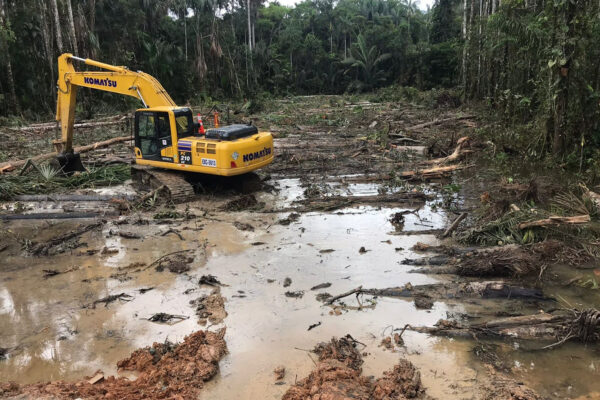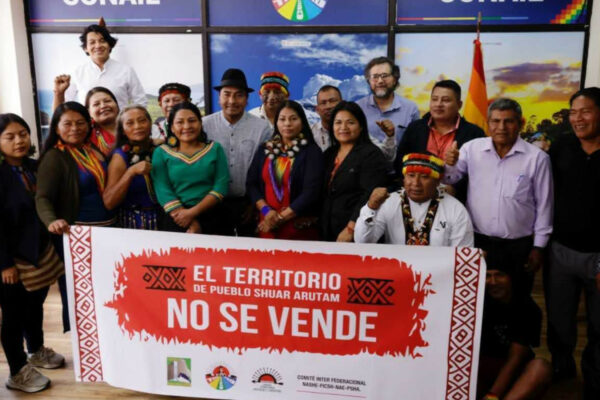Quito, Ecuador – The United States,
Canada and Latin America agreed to a strict timetable
on Friday to negotiate a free trade zone that would
span the Americas by 2005, but failed to settle
festering disputes that trade chiefs said could
unravel negotiations.
The one-day meeting of ministers in Ecuador’s capital
Quito ushered in Brazil and the United States – the
largest economies in North and South America – as
co-chairs of talks to create the Free Trade Area of
the Americas, or FTAA.
The United States urged Latin America to push ahead
with the pact despite political and economic woes
rippling across the region, including a brief coup in
Venezuela in April and a disastrous debt default in
Argentina.
“I recognize that this is a time of economic, and
indeed political, uncertainty in this region and
indeed the world. And I know the courage of many of
you taking on this task. … But this is the time,”
said U.S. Trade Representative Robert Zoellick.
Under Friday’s agreement, countries must present draft
trade proposals outlining tariff reductions by Feb.
15. Revisions are scheduled through the next two years
to reach a final accord at a summit slated for Brazil
in late 2004.
Agreement on the timetable was widely expected, but
ministers said it showed talks were still alive and on
track.
But Brazil, which accounts for nearly half of South
America’s economic output, said it may never sign the
free trade accord it will negotiate.
Brazilian Trade Minister Sergio Amaral said his
country would be satisfied joining a free trade pact
grouping Latin American nations, but excluding the
United States, if the Americans refuse to make key
concessions such as slashing import tariffs and farm
subsidies.
“If there isn’t included in this accord the removal
of important (U.S. trade) barriers that affect our
exporters, there is, obviously, no reason to have an
FTAA. In this case, we’re going to work and we’re
already doing it, to attempt (trade) integration
within Latin America,” Amaral said.
Most South American nations, which depend on farm
exports, want the United States to slash some $19
billion in domestic subsidies protecting key U.S.
agricultural sectors. The United States says it cannot
do that until other economic powerhouses, including
the European Union and Japan, follow suit.
SUBSIDY STALEMATE Recognizing the farm subsidy
stalemate, Latin American nations said they would look
to the World Trade Organization to help the United
States fight to lower European Union and Japanese farm
subsidies. But that battle could take a very long time
– possibly beyond the FTAA’s planned 2005 start date.
“It is our hope that we will be able to handle both
negotiations to our common benefit as countries that
are interested in liberalizing the trade in
agriculture,” said Brazilian Foreign Minister Celso
Lafer.
Asking Latin American nations to be patient as they
enter direct competition with the United States, the
world’s largest economy, could be a tall request. The
region’s masses are mostly poor, and cash-strapped
governments that make money from import taxes are
saddled with sluggish economies and soaring debt.
Brazil on Sunday elected former union leader Luiz
Inacio Lula da Silva as president of the world’s
ninth-largest economy. The leftist leader has said the
FTAA would end in the “annexation” of Brazil, and
the country came out against the free trade zone in a
recent referendum.
He will take office on Jan. 1, and officials in Quito
declined to speculate whether he would toughen
Brazil’s already-firm stance in the FTAA talks.
Thousands of people from across Latin America
protested the free trade talks, marching on the
capital on Thursday and holding a rally at a Quito
university on Friday. Huddled in the auditorium at
around noon, the activists chanted “We don’t want,
and we won’t be, made a U.S. colony.” “Down with the
FTAA” and “Down with the World Bank” also were
popular choruses.
“There isn’t freedom of thought. The Yankees are
forcing us to agree with them. But we feel differently
(about the FTAA),” said Bolivian Indian activist
Wilber Flores.
The next ministerial meeting is scheduled for late
2003 in Miami













